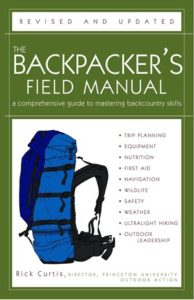Watching and listening to “the discourse” on environmentalism in the popular press has been fascinating over the last five years. The sheer number of descriptors used to try to “brand” environmentalism for the 21st century seem to increase right along with our carbon emissions. Who are the losers in this game?
1. “Preservation/Conservation.” Too “retro” and old-fashioned. Seems against “progress.”
2. “Environmentalist” Too exclusive and cliche. Brings to mind birkenstocks, beards, and patchoulli.
3. “Organic.” See above. Plus, what happens to “organic” when canned beans from China sold at Walmart are “organic”?
4. “Wilderness.” The post-modernists took this one down. An environmental ideal without humans in it, hmmm….
5. “Sustainable Development.” A classic oxymoron. Like “military intelligence.” Or, “fresh frozen.”
6. “Bio-regionalism.” Sounds like something a professor cooked up in “ye olde ivory tower.”
The winners?
1. “Sustainability.” Lop off the “development” part and it sounds much better! Who cares if no one knows what it means!
2. “Eco.” You can put the prefix in front of anything. “Eco-schools,” “eco-parks,” “eco-design,” etc.
3. “Local.” Appeals to our American, Mom-and-apple pie roots.
4. “Green.” It cannot be as easily stereotyped as “tree-hugging environmentalist.” And corporate America is on board.
But my sense is that all these may lose out to perhaps the best, most powerful, all-inclusive descriptor that has recently emerged. “Smart.” Who doesn’t want to be “smart”? A recent IBM advertisement brought this home to me. It featured scientists and engineers all over the world talking about “smart cities,” “smart traffic flow,” “smart energy grids,” etc. “Smart” ties into our technological and scientific fetish. It implies that we don’t need to stop progress, we just need to be “smarter.” It appeals to innovation, to capitalism, and to optimism. It also appeals to our “flattened” world. This is not a euro-centric ideal. We can imagine “smart schools,” “smart cars,” “smart urban planning.” And, importantly, it is hard to stereotype and pigeon-hole. If you are not “for” smart cars and cities what are you for, “dumb” cars and cities? Finally, it is not tied to the “environment” per se which avoids the “tree hugger” issues. Republicans, democrats, libertarians… we can all agree to be
“smarter” about our designs, our living, and our consumption patterns.
Of course, there will be critics. “Smart” doesn’t imply much humility. And, it seems awfully anthropocentric. But, we need visions, ideals, and a language that appeals not to the fringe but to the all important “radical center.” Being “smart” may mean using the best of technology and innovation but it need not exclude the wisdom gained from more traditional cultures or long forgotten ways of being and thinking. A perfect example of this can be seen in the short film about the Druk White Lotus School in Ladahk, India https://bit.ly/ivdn0. Now that school, that vision, is “smart” in every sense of the word.
Words matter. Foucault once said that “language is power.” Creating an inclusive, open, and inviting social movement is, in the end, the “smart” thing to do.


